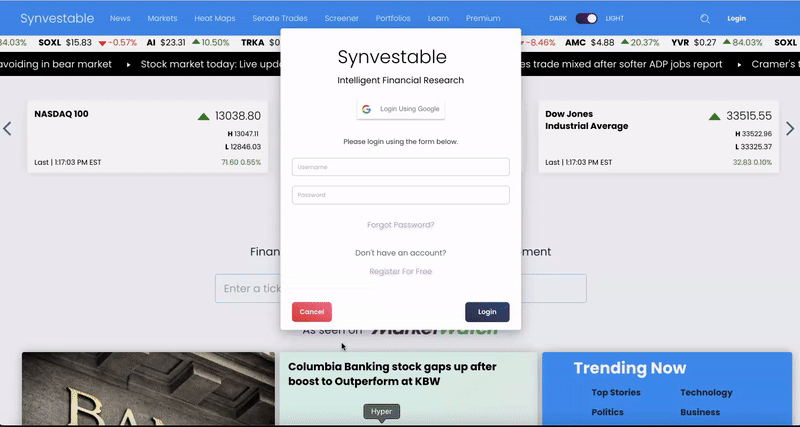We often speak with our clients and friends about financial independence, mostly because we find it interesting and the conversation always seems to gravitate in that direction anyways.
What we've found is that many people are expressing the same concerns—it's getting harder out there.
Between corporate layoffs, tighter consumer spending, and higher costs of lending, we felt it to be necessary to do an editorial piece that will help our friends and clients achieve financial independence, retire early, and tackle their biggest financial issues.
We often don't realize, but almost every financial problem is actually a behavioral problem.
This is what is giving rise to fields such as behavioral finance. As it turns out, both wealth and poverty—two ends of the same spectrum—can be reduced down to our beliefs, actions, and habits surrounding money.
If you are going through a financial event—if you commit to changing these five habits this year—we promise that you will find yourself closer to financial independence to retire early sooner than you ever expected.
Here are the Top 6 Habits Keeping You From Financial Independence
- Not Paying Yourself First
- Carrying A Credit Card Balance
- Not Leveling Up Your Skills
- Using These Two Words Regularly
- Not Putting Money To Work Intelligently
- Loaning Money to Friends
Subscribe For FREE Stock Insights!
And a chance to win free shares of stock.
Not Paying Yourself First

If you've never read The Richest Man in Babylon, it's worth a read as this principle comes from the ancient and jewish traditions of finance.
It's based around the simple concept that wealth isn't about how much money you make, it's about how much you keep.
Wealth isn't about how much money you make, it's about how much you keep.
This is what it means to pay yourself first—for every dollar of earnings you make, take at least 30% of it, and immediately put it into a savings account.
You must do this:
- Before you pay any bills.
- Before you buy anything.
- Before you invest in anything.
This is the habit that forms the bedrock of all other wealth generating endeavors—learning to live off 70% of whatever you take home.
Sit down and go through your spending with Mint.com and see where all your money is going. Connect all your accounts and make cuts to your budget by canceling services, moving into a smaller residence, or finding a roommate.
Do whatever you need to do to find a way to live off 70% of your income—it is the absolute first principle of wealth generation.
Carrying a Credit Card Balance

Credit cards can be a great tool when it comes to building credit history, and even collecting cash rewards on every day purchases.
If you are not using credit cards, you're literally missing out on free money that is given to you by your banking institution in the form of cashback rewards.
However, credit cards become dangerous when you start to carry a balance. With APY's up to 29.99% or even higher, carrying a forward balance month-to-month is a surefire way to find your cash accounts in the negative very soon—you are literally throwing away money by being financially lazy.
If you find yourself carrying a forward balance, it means you are living beyond your means.
Again, you need to find ways to cut back on your expenses and Mint.com is a great resource for getting a hold of your finances to see where all your spending is going.
Not Leveling Up Your Skills

You don't have to stay where you are. Especially in America, upwards mobility is available to anyone who is willing to put in the time and right effort to achieve it.
Earnings power comes from having in-demand and monetizable intellectual assets that society will pay you to engage.
This can range from technical skills like programming to trades likes HVAC, plumbing, electrical, and mechanical skills. They can also extend to project management skills or specialized certifications such as HIPAA consulting or cybersecurity auditing.
You can use sites like Udemy or Udacity to take courses online that will teach you new technical skills.
As you go through these courses—for every class project, create an online portfolio for everything you built in the course and put it on your resume.
If you're making a career change and don't have the experience in the new field, learn how to build a functional resume that will position your candidacy from a skill perspective rather than a timeline perspective.
If you are making a career change and lack experience—learn how to build a functional resume.
The point is this—if you're not satisfied with your hourly take home or your current salary, then it's time to search for new angles of attack to justify a higher compensation rate.
Certifications like Six Sigma, CompTIA, or other professional certifications that require a proctored exam will open up more opportunities for you, especially if you're highlighting each one of these accomplishments on your LinkedIn Profile.
Commit 10-20 minutes a day everyday to leveling up your skills by any means necessary. And remember—it only takes three months to become truly dangerous with a new skill set.
Subscribe For FREE Stock Insights!
And a chance to win free shares of stock.
Using These Two Words Regularly

So you've gotten down to this part of the article—and if you're one of the I Can't people, you've probably scoffed at something already with one of the following excuses:
- I can't pay myself first, these bills have to be paid first!
- I can't pay off my credit cards every month, have you seen these bills?!
- I can't learn a new skill, I just don't have the time!
When it comes to the stories we tell ourselves, the language patterns we use matter. Using the words I Can't is written in stone—you can't. Period.
It's natural to think our situation is special, and sometimes it can feel comforting to stay in the "woe is me" mind-talk because it soothes us—if they only knew my situation, then they'd see why I can't!
But for every bad situation, there's someone out there much worse off than you, who's dusting themselves off and making the commitment to make some changes daily.
You don't have to move mountains, you just have to make small changes and be consistent with them to get momentum at first.
Here's a small change for the I Can't folks out there, using the same excuses above:
- I can pay myself first, I just need to do it and figure out a way to cut these bills down.
- I can pay off my credit cards every month, I just have to arrange my finances some how.
- I can learn a new skill, I just need to commit to it in the morning with my coffee first thing.
Giving yourself the possibility that you can make a change makes it much more likely that you will start to see a change.
But if you're closing yourself off to gaining any mental momentum whatsoever, you'll get exactly more of whatever story you're telling yourself.
Not Putting Money To Work Intelligently

Going back to our first principle of wealth generation, wealth is not about how much money you make, it's about how much you keep.
If you're investing irresponsibly in high-risk ventures, or blowing all your money on trips or expensive cars, or even loaning money to family members or friends who "swear they'll pay it back," then you're on the fast track to losing everything you've worked hard for.
This concept comes down to who you choose to give money to and how you invest your savings.
Loaning Money To Friends

It's important to be helpful in our dealings with others—but when it comes to wealth management, you choose your charities.
This means you consciously choose how much and when to tithe—not someone else.
Oftentimes we find ourselves in predicaments with family, friends, or significant others who find themselves in a rock and a hard place—they need the money right now—and we think that giving them money will help them get ahead.
But the truth is that this is not the best service we can give to these people—we can be of service to others in more ways than just money.
This can be in the form of recommendations, resource discovery, or even making a connection for them in your network that will provide them a financial opportunity.
Giving money to people with money problems does not fix the problem—it fixes the symptom.
And you're doing them and you a severe disservice by throwing money at the symptom.
Giving money to people with money problems does not fix the problem—it fixes the symptom.
If you care about them—make it clear that you while you can't give them the money, you will work with them to help solve the root of the problem. If they balk at you, or make you feel guilty, you have to cut them out of your life completely.
The truth is that you have your own life to live—not theirs—and you offered to help them in the ways that you can. If they balk at that, or act disrespectful, then your conscience is now clear—get them out of your life.
Donating to a person will reinforce the bad financial habits they've formed, and you can all but guarantee they'll be back for more.
However, donating to a cause such as organized charities engages entire organizations to solve the root cause of major societal problems.
Which is a better use of your capital?
Before you ever give away money, ask yourself—am I donating to a person or to a cause?
Don't Let Years of Lost Compounding Cost You
Get the the special research that still beats the market.

Register For Free in Seconds! Click The Image
The absolute best app in finance. Register in 3 seconds using your Google Account!

Subscribe For FREE Stock Insights!
And a chance to win free shares of stock.
DISCLOSURE: Synvestable is a financial media provider only and is providing the above data for research purposes only. Please consult your financial advisor before investing as investing carries the risk for potential loss of capital. For more information, please consult our Terms of Use on www.synvestable.com





